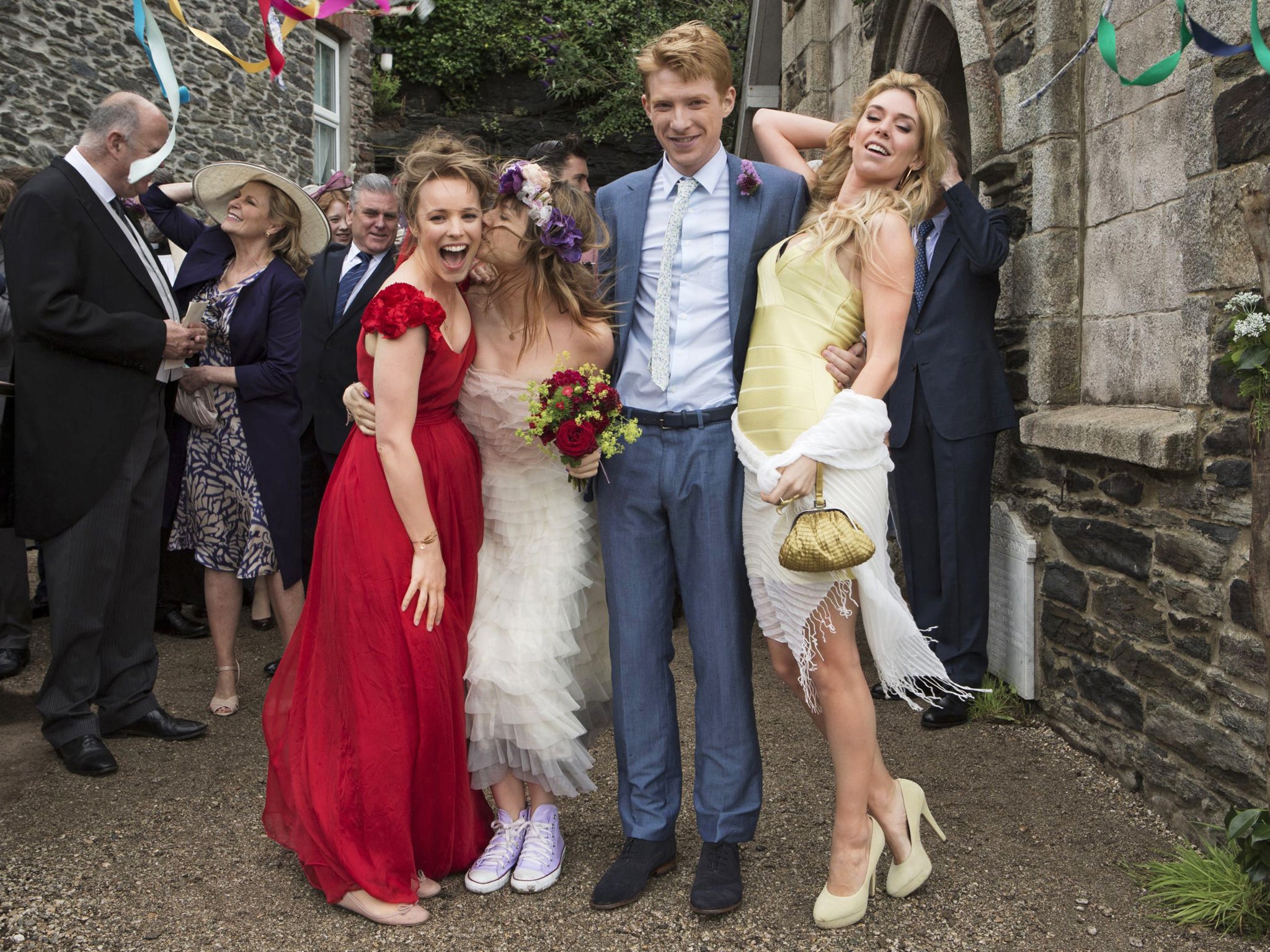Film review: About Time - Richard Curtis's directorial swan song is Awful, Actually
(12A)

I felt very sorry for the young woman at the screening of Richard Curtis's new film who found herself sitting right by the muttering loony; on and on he went, cursing beneath his breath, clicking his tongue in exasperation and quietly repeating the words "I hate this film" as if it were a mantra. Unconscionable, really. In fact, I'd like to offer her a personal apology and give an assurance that I'll try not to behave like that in a cinema again. But I couldn't help myself.
About Time is actually an improvement on Richard Curtis's previous outing as writer-director, the repulsively sleazy and puerile The Boat That Rocked. Its cast is strong, the location work is attractive, and Domhnall Gleeson is so disarming in the lead role that at times the film becomes almost bearable. He plays Tim, a lanky, pale, ginger-haired young fellow who at certain angles looks positively handsome; he is, in the Curtisian way, a hopeful romantic. On his 21st birthday, Tim is informed by his father (Billy Nighy) that the men of their family are secretly blessed with the gift of time-travel. You just nip into a dark closet or cupboard, clench your fists and, hey presto, you're off. But the small print reveals it's travel of a limited kind: the beneficiaries can only trip back (not forwards) within their own lifetime, so there's no assassinating Hitler or saving the Titanic or whatever.
Tim, in any case, knows straightaway how he's going to use his power: he wants to get a girlfriend. Things look promising when he meets a cute American, Mary (Rachel McAdam, already a veteran of such whimsy from The Time-Traveler's Wife) but on account of a glitch he "loses" that first encounter and has to woo her all over again. Then, deploying his time-bending lark to edit out all his gaffes on their Big Night – a stumble on the stair, a fumble with the bra, a tumble in the sack that's not quite perfect – he makes smooth the course of true love without Mary suspecting a thing. This might have struck us as a clever conceit had we not seen it done with far more wit, heart and precision 20 years ago in Groundhog Day. It's the same routine that Bill Murray's misanthropic weatherman follows, obliged to rehearse the same moves and learn the same lines over one eternal day until he wins round the woman he loves.
The moral tension there lay in character: Murray starts out as a creep who becomes ennobled by his Sisyphean task. In About Time, Gleeson's Tim is a lawyer, a job which could have been mined for character flaws but isn't: he's a decent and kindly bloke who happens to be slightly awkward around women. Curtis, far from putting obstacles in his way, creates around Tim a blessed bulwark of middle-class ease: parents (Nighy and Lindsay Duncan) who adore him, a romantic family house overlooking the Cornish coast, lots of friends, good prospects. Why does this already privileged young man need to be a time-traveller?
The script strikes one horrible false note after another. Early on, Tim says in voiceover (echoing Hugh Grant in Love Actually), "I have never bumped into a genuinely happy rich person", which is not a generality that will bear close scrutiny in a Curtis film. You keep hearing the clunk of a writer who doesn't "get" human interaction. A small example: emerging from the theatre, Tim and his friend run into Charlotte (Margot Robbie), who was Tim's first crush. She is also with a friend, which puts the kibosh on the pair of them having a proper catch-up. They say goodbye. Cut to a minute later and Charlotte reappears, having told her friend to (and I quote) "go and have dinner on her own". Tim dumps his own friend in like fashion. Did this brusque social expediency seem in any way charmless or hurtful to the writer? Apparently not – but it does to us. One's goodwill is further tested by silly riffs about "prostitutes", the done-to-death montage of The Woman Who Can't Decide Which Dress To Wear, and a wedding speech in which dad tells son that he loves him. Pass the bouquet.
We get brief patches of shade to counterpoint the banks of light. Tim's sister is an unstable girl who expresses her unhappiness through drink and a twerp of a boyfriend. Her name is Kit Kat, which may represent another, probably unconscious, plagiarism on Curtis's part. Alan Hollinghurst's novel The Line of Beauty (2004) also features an unstable sister who expresses her unhappiness through drink and a twerp of a boyfriend. Her name is Cat. The film then breaks its own rule about time-travel as a men-only inheritance by allowing Tim to whisk Kit Kat back in time to show her a crucial error she must avoid. But the betrayal of its logic feels small beer amid the larger offences of taste and tone.
His defenders will argue that About Time is a lovely, sunny film about the importance of noticing "how sweet the world can be". To object to that would be curmudgeonly. What's so galling is that Curtis gives optimism a bad name. The message is unarguable: be kind. Be grateful. Be nice to one another. The method, however, is glib, ingratiating, falsely democratic and frequently inept. This latest enacts a fantasy in which death itself is briefly cheated: before a loved one dies of cancer, wouldn't we all like to flit back to a time when we accompanied them on a sunlit stroll on the shore? And when they do finally shuffle off, why not have more children to plug the gap? Pardon me if I choke on these tranquillising inanities.
Join our commenting forum
Join thought-provoking conversations, follow other Independent readers and see their replies
2Comments